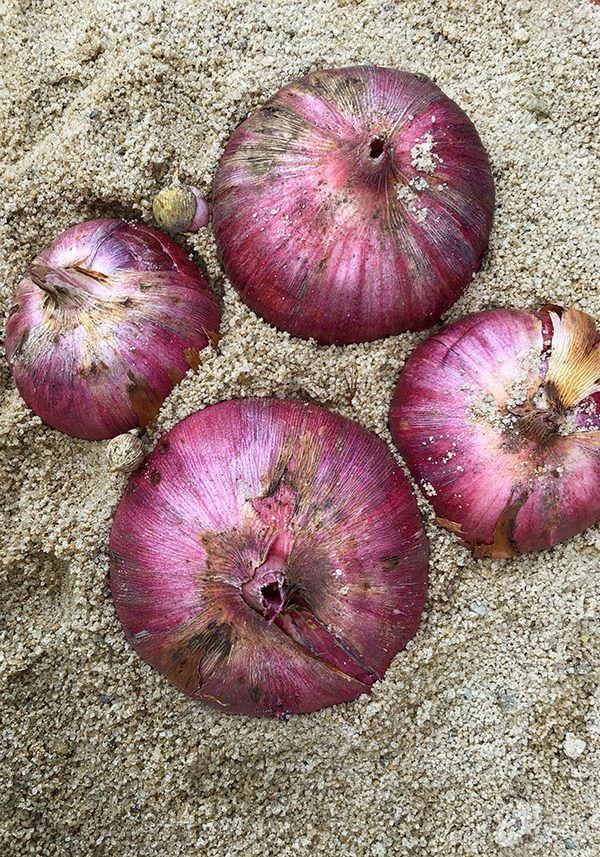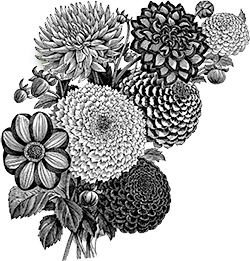Glads are easy to store. Every fall I just dry mine, dust them with a fungicide, and hang them up in mesh bags in a room that’s cold but never freezing.
Experiments at the University of Florida, though, suggest there may be a better way.

According to Dr. Robert Magie in a 1993 article that was reprinted recently in Glad World, “When in the early 1960s gladiolus growers in Florida began placing freshly harvested, cleaned, and treated corms in soil storage with little or no curing” – which typically involves air-drying them at temperatures– “I conducted experiments to learn what ... effects the lack of ordinary curing would have on flower production and disease control.
“The results … were entirely unexpected. We harvested more marketable flower spikes and more sound corms when … corms were not cured as usual but placed in cool storage a few days after lifting. In other tests, the longer we cured the corms the poorer the production of flower spikes and corms.” Furthermore, when corms were cured and stored in “sawdust or sand, we harvested more spikes and corms than from corms cured in the air.”

This makes sense, Magie says, because until humans “began to lift and store corms to be replanted, glad corms had always grown where the seed started to grow (except for the corms dug up and eaten by baboons). Natural conditions for all those millennia in native Africa were as follows: corms cured slowly in dry soil at the end of a six-month rainy season. They rested in warm soil until cool, wet weather arrived six months later…. Thus, glads were conditioned for a million years to a sedentary life in soil.”
I figure it’s worth a try, so I’m planning to store a few corms this fall in sand and a few others in sawdust (if I can find some) or the cedar animal bedding I use for dahlias.
If you try it, too, please let us know your results – and watch out for baboons!











